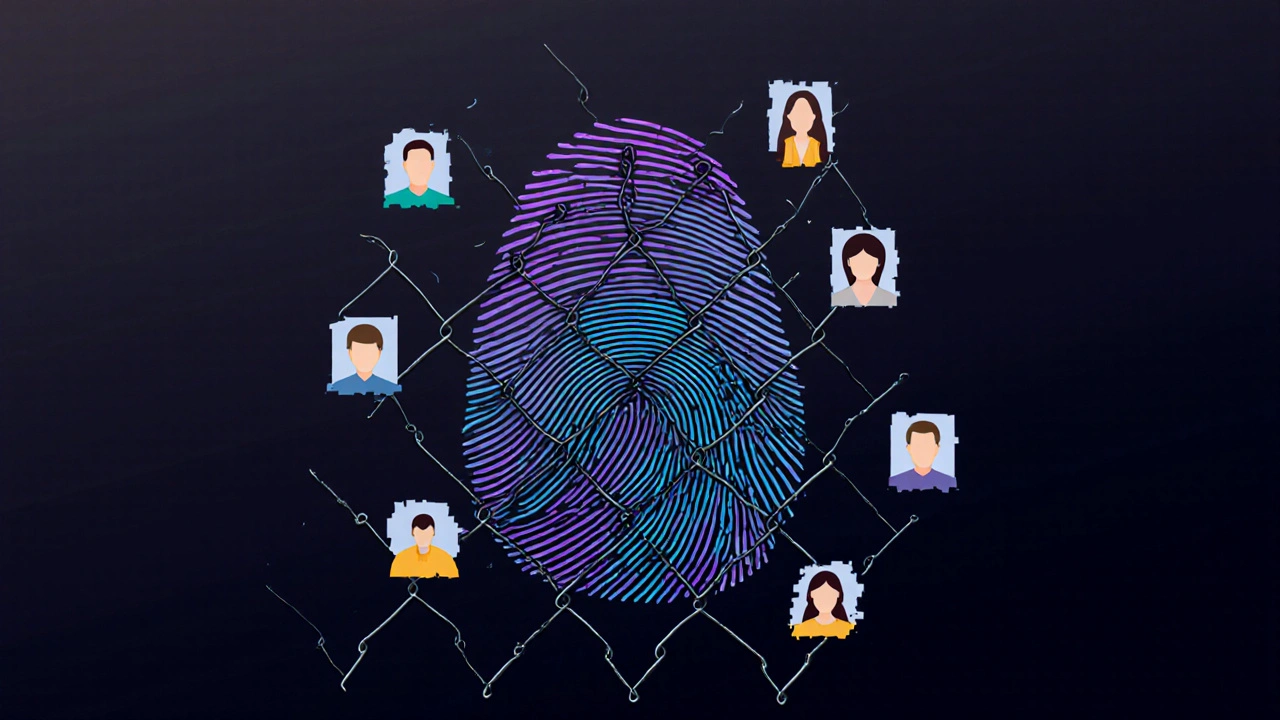Curious about escort sites? Whether you're just exploring or looking for actionable advice, this guide breaks it down clearly and simply.
What Are Escort Sites Really Like?
Escort sites are online platforms where individuals list themselves as companions for hire, often offering services ranging from dinner dates to overnight stays. These sites aren’t dating apps-they’re marketplaces with profiles, photos, reviews, and contact options. Many users assume they’re harmless or legal by default, but that’s not true everywhere. In the UK, while paying for companionship isn’t illegal, soliciting sex in public or running an unlicensed brothel is. That means many listings walk a legal tightrope.
Most sites operate in a gray zone. Some claim to be for "entertainment" or "companionship," but the reality is often different. You’ll find everything from independent workers trying to stay safe to organized operations hiding behind fake profiles. The key isn’t whether the site exists-it’s how you navigate it.
Why Does Safety Matter More Than Ever?
Every year, police in the UK report dozens of cases linked to escort sites: scams, theft, assault, and even human trafficking. Many people think "it won’t happen to me," but the risks are real and often hidden behind polished profiles and flattering language. Scammers use stolen photos, fake names, and urgent messages to lure people into meeting in unsafe places. Others set up fake payment requests or demand upfront cash with no intention of showing up.
If you’re considering using an escort site, your safety isn’t just about avoiding crime-it’s about protecting your privacy, finances, and mental well-being. A single bad experience can leave lasting consequences. That’s why knowing the five key safety tips isn’t optional. It’s the difference between walking away unharmed and walking into danger.
How Do You Stay Safe on Escort Sites?
- Never pay upfront-Always agree on payment after the meeting, in cash. No legitimate independent escort will ask for bank transfers, gift cards, or crypto before you meet. If they do, it’s a scam.
- Meet in public first-Arrange your first meeting in a busy café, hotel lobby, or restaurant. Never go to a private home, Airbnb, or isolated location on the first date. This gives you an exit strategy and reduces risk.
- Verify identity-Ask for a video call before meeting. Look for consistency: does their face match the photos? Do they know details from their profile? Scammers often reuse stock images or stolen identities.
- Tell someone where you’re going-Send a trusted friend the profile link, meeting time, location, and vehicle details. Set a check-in time. If you don’t check in, they call the police. This simple step has saved lives.
- Trust your gut-If something feels off-too pushy, too cheap, too rushed-walk away. No date is worth your safety. Real professionals respect boundaries and won’t pressure you.

Pros and Cons
| Pros | Cons |
|---|---|
| Discreet access to companionship for adults seeking non-romantic connections | High risk of scams, fraud, or illegal activity |
| Many independent workers screen clients carefully for safety | Lack of regulation means no accountability if things go wrong |
| Clear profiles and reviews can help identify trustworthy individuals | Some sites host underage or trafficked individuals-hard to spot |
| Can reduce loneliness for people who struggle with traditional dating | Legal gray areas can lead to police involvement even if you’re innocent |
When Is It Most Useful?
Escort sites are most useful when someone is seeking a specific kind of social interaction-companionship without emotional entanglement, conversation without judgment, or simply someone to share a meal or event with. This might apply to people who are newly divorced, living abroad, or socially isolated. For some, it’s a way to reconnect with confidence or explore personal boundaries in a controlled setting.
But usefulness doesn’t mean safety. The only time these sites are truly "useful" is when you approach them with extreme caution, clear boundaries, and a safety plan. If you’re looking for romance, emotional connection, or long-term relationships, escort sites are the wrong tool. They’re not dating apps. They’re transactional spaces-and treating them like anything else invites risk.

Common Mistakes to Avoid
- Believing "everyone does it"-Just because a profile looks professional doesn’t mean it’s safe. Many scammers copy real profiles or use AI-generated photos. Always verify independently.
- Ignoring location details-Meeting in a hotel? Make sure it’s a reputable chain with front desk security. Avoid small, independent motels or private rentals with no staff. If the location feels sketchy, change it.
- Sharing personal info too soon-Don’t give your full name, workplace, or home address until you’ve met multiple times and built trust. Even then, err on the side of caution.
- Using the same site repeatedly-Using the same platform over and over increases your digital footprint. That can make you a target for stalkers or blackmailers. Rotate sites if you must use them.
- Assuming legality = safety-Just because a site says it’s "legal" doesn’t mean it’s safe. Many operate in legal gray zones and have no real oversight. Always prioritize your personal safety over claims of legitimacy.
FAQ
Are escort sites legal in the UK?
It’s not illegal to pay for companionship in the UK, but many activities around it are. Soliciting sex in public, running a brothel, or advertising sexual services is against the law. Most escort sites skirt these rules by using vague language like "entertainment" or "companionship." That doesn’t make them safe or fully legal.
How can I tell if an escort profile is fake?
Look for inconsistencies: mismatched photos, poor grammar, generic descriptions, or pressure to move communication off the site. Do a reverse image search on their photos-if they appear on stock photo sites or other profiles, it’s a red flag. Ask for a live video call before meeting. If they refuse or make excuses, walk away.
What should I do if I feel unsafe during a meeting?
Leave immediately. Don’t argue, don’t negotiate. Get to a public place and call someone you trust. If you’re in immediate danger, call 999. You don’t need to explain yourself. Your safety comes first. Report the incident to the site and consider contacting the UK Human Trafficking Centre for advice.
Do escort sites screen their members?
Most don’t. Some claim to, but verification is often superficial-just a photo upload or email check. Independent workers may do their own screening, but commercial sites rarely verify age, identity, or background. Never assume someone is vetted. Always protect yourself.
Can I get arrested just for using an escort site?
You won’t be arrested for simply viewing a site or sending a message. But if you arrange a meeting that involves illegal activity-like paying for sex in a brothel or engaging in public solicitation-you could face legal consequences. Police often monitor these sites for trafficking or exploitation, so your digital footprint can be traced.
What are safer alternatives to escort sites?
If you’re seeking companionship, consider social clubs, hobby groups, or therapy-focused communities. Apps like Meetup or Bumble BFF help people connect without financial exchange. For emotional support, organizations like Mind or Relate offer free, confidential services. You don’t need to pay to feel connected.
What’s Next?
If you’ve read this far, you’re already thinking more carefully than most. Don’t rush into anything. Take your time, trust your instincts, and always put safety first. If you’re unsure, don’t go. There’s no shame in walking away. Your well-being matters more than any date.






Dentist Melbourne on 9 November 2025, AT 15:40 PM
This is the most irresponsible garbage I’ve read all year. You’re acting like these sites are some kind of harmless dating app when they’re literally breeding grounds for exploitation. I’ve seen too many young women get trapped in this system-trafficked, abused, discarded. And now you’re giving them a fucking manual on how to ‘stay safe’ like it’s a camping trip? No. This isn’t about safety. It’s about enabling predators and delusional men who think they deserve companionship on demand. Stop normalizing this. Stop glorifying transactional sex. There’s a reason this is illegal in most civilized countries.
And don’t give me that ‘they’re independent workers’ crap. If they were truly independent, they wouldn’t need to hide behind fake profiles and vague language. They’d be working in regulated spaces with labor rights. But no, you’d rather pretend this is a free-market fantasy than face the ugly truth: this is modern slavery with a smiley emoji.
People like you think you’re being ‘pragmatic.’ You’re not. You’re complicit.